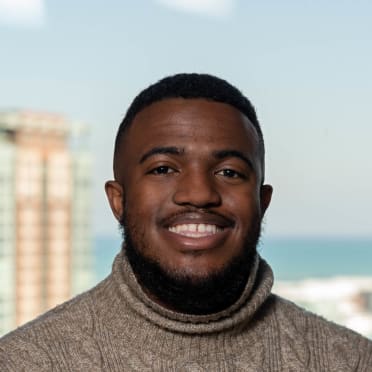Dawson headlines list of stars supporting MLB Develops
VERO BEACH, Fla. -- If you were present at The Jackie Robinson Training Complex this weekend, there was a definite buzz around the historic Holman Stadium, buoyed by the competitive play between the six historically Black colleges and universities at the 16th Andre Dawson Classic. But away from the action, onlookers flocked to certain pockets of the stands, hoping to get a glimpse of, maybe even sneak a conversation or autograph from, the legends seated next to them.
Headlined by the event’s namesake, Hall of Famer and Florida A&M legend Andre Dawson, the tournament acted as a beacon for former MLB players, managers, historians and MLB Develops executives. A chance to see the results of years of hard work and progress to provide exposure to HBCU baseball and shine a spotlight on the elevated talent on the field.
“I was pretty overwhelmed when Major League Baseball reached out to me,” Dawson said with a laugh, when asked about the event being named after him. “I could have never envisioned or imagined something like that happened.”
“We’ve done this event, and New Orleans was a great venue [from 2014-23],” said Jerry Manuel, the former Mets and White Sox manager who serves as an MLB Develops consultant and helps out with the DREAM Series. “But to bring predominantly African American teams here, I think it’s an awesome experience. Because this is where it started for us, with Jackie Robinson.”
Dawson, in the midst of fielding autographs and appearing on the MLB.com broadcast on Friday evening, spent much of his time sitting in the stands and enjoying laughs with fellow FAMU grads. It was partly a trip down memory lane, remembering his own experiences that turned him into the legendary player he became and the man he is now.
Moreover, he was able to see hundreds of college athletes showcasing how integral the HBCU experience can be to someone’s growth -- giving him hope for the future perception of HBCUs as a whole.
“I’d just like to see the quality athlete consider an HBCU, or look at that as a viable experience,” Dawson said. “My experience, I would never change, because of how it allowed me to grow as a young adult. To get away from home, experience different relationships. I was homesick at first, but that resolved itself pretty quickly.
“I got an education, and I think I got the right education in the right environment. … It continues to grow, and the thing about it now, there seems to be a bit more parity [in talent] amongst the teams.”
Much of MLB Develops’ programming, like the DREAM Series and Breakthrough Series, aims to ensure that minority and underserved top-talent receive exposure and coaching to help them reach the next level.
But it’s about increasing the talent pool for Black and Latino players, creating a higher volume for players of all skill levels to find a place in the game. It’s about reigniting a widespread interest in the sport, harkening back to the halcyon era when baseball was a pillar in the Black community.
“It’s important for former managers and whomever of color to be back involved here, because eventually us coming back and giving helps the game itself,” Manuel said. “When you’re missing a culture that’s been a part of the game for so long, and you’re missing that, then the game isn’t what it should be.”
There’s a residing hope that HBCU programs and events like the Andre Dawson Classic can be part of the solution to the dwindling Black participation in professional baseball. That programs like Southern University, Grambling State University and FAMU can act as fruitful pipelines into baseball, both on the field and in the front office.
But whatever the future of Black baseball looks like, both at HBCUs and across the rest of the country, the old guard is fully prepared to help each player at every step along the way.
“It’s important, because I was once there,” Dawson said. “Someone had to take me under their wing and teach me, counsel me. And of course, we look to the wiser individuals when it comes to direction. That’s what these young student athletes are up against. To be told what’s proper and what’s improper.
“And they’re only going to get that from people that have experienced it, or know something about it.”
